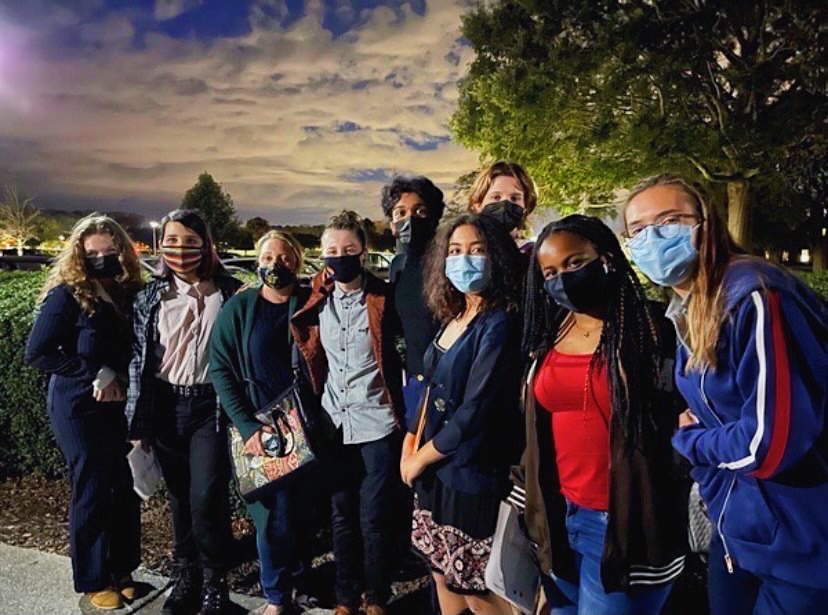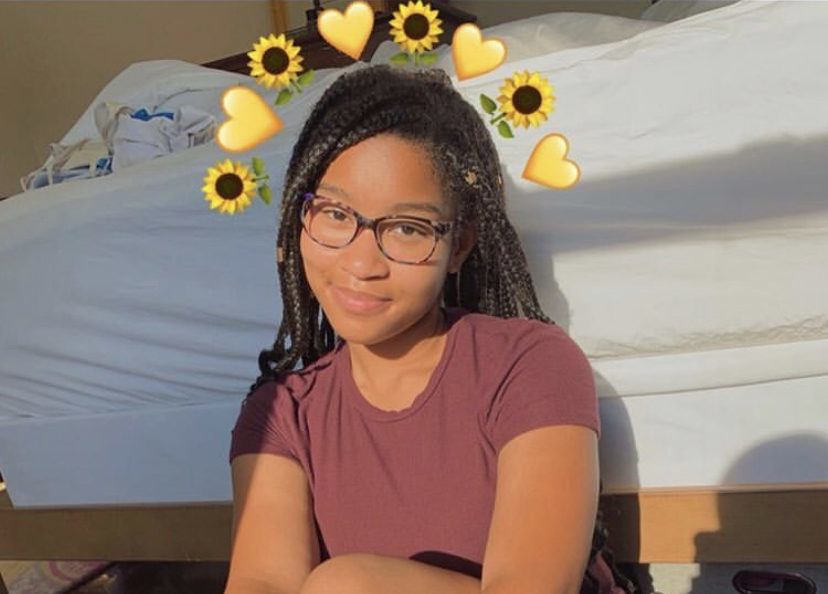Students challenge censorship at School Board meetings
Featured here are students who spoke at the School Board meeting, outside of the administrative building off George Mason Dr., on Oct. 26, 2021.
December 21, 2021
Virginia Beach high school students have addressed the School Board to debate whether certain books in school libraries should be banned.
In the month of October, six books were challenged due to claims by parents and two board members that they contain “sexually explicit” and “divisive language” and should be pulled from libraries.
“My main point of interest was confronting Board Members and parents’ censorship,” said Princess Anne High School junior Uré Emejuru.
Among the books challenged, many highlight stories of authors of color and/or LGBTQ+ individuals. Some of the books include: “The Bluest Eye,” by Toni Morrison, and “Beyond Magenta: Transgender Teens Speak Out,” by Susan Kuklin.
“By taking select passages out of a memoir by an LGBTQ+ individual, a type of work that is not necessarily abundant in school libraries, much less public libraries, certain Board Members are disregarding the importance of stories that certain students, specifically those questioning their identity in this instance, can relate to,” said Princess Anne High School junior Vikram Kolli at a School Board meeting on Oct. 26.
Although discussions of book bans have existed for decades, the topic arose throughout the 2021 Virginia Gubernatorial election as the novel “Beloved” by Toni Morrison stirred up controversy.
“The banning of literature is not necessarily aimed at the protection of children, but rather people in positions of authority using selective passages from books out of context to further a local political agenda,” said Vikram.
According to NBC News, Gov.-elect Glenn Youngkin recently released an ad that featured a parent, Laura Murphy, who previously led a campaign over her disapproval of “Beloved” being required in her son’s senior-year Advanced Placement English class in 2013. In the ad, Youngkin condemned former Gov. Terry McAuliffe’s veto of a bipartisan bill, the Beloved bill, that would have required schools to notify parents when books that contain explicit content were assigned.
“The problem is if you look for something salacious or provocative it is likely to be taken out of context,” said Library Media Specialist Nicole Glaser.
Many of the claims brought to the Board contained false information, such as they were rife with “pornographic” material and should therefore be removed from school libraries; however, according to The Virginian-Pilot, some of the challengers either took specific parts of the novel or never fully read them. In many of the novels, abuse and assault are prevalent, topics some students may face.
“As I looked through the lenses of parents who deem these books as ‘pornographic,’ I tried to find a common ground,” said Tallwood High School junior Giana Iraná Lathan. “As parents, you have every right to control the media, books, and many other things your child will indulge in while they are under your roof, but do not make this decision for every parent and teacher.”
According to Freshman Ian Brite, high school students should have access to these books, and parents concerned with their child’s reading material should have a document to sign to decide if their child should read the book.
“The library is a unique place in that you do not have to read anything in here that you do not want to,” said Glaser. “Nothing is mandatory.”


